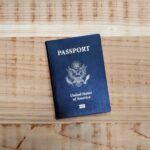
Welcome to FindBiometrics’ digest of identity industry news. Here’s what you need to know about the world of digital identity and biometrics today:
M&A
Advent will proceed with the sale of IDEMIA “imminently”, according to a Reuters report. Goldman Sachs and Rothschild have been retained to organize a deal amid some unease about unfavorable market conditions, though IDEMIA’s “prized biometrics and ID business” is expected to attract strong interest. Read our full story.
NIST Guidelines
The National Institute of Standards and Technology (NIST) is nearing completion of a new guidance on “Mitigating Cybersecurity Risk in Telehealth Smart Home Integration,” with a final product description having been completed this week. The guidance will focus on the protection of consumer privacy with respect to the use of health tracking Internet of Things devices. The guidance is being developed by NIST’s National Cybersecurity Center of Excellence.
Executive Appointments
Onfido has named Elisa Gilmartin as its new Chief People Officer. Gilmartin comes to the biometric onboarding specialist from Fuze, the developer of a business communications platform, where she served as Chief People Officer since August of 2019. She has also held senior human resources roles with Symbotic, Eze Software, Polycom, and Monster. Onfido has enjoyed considerable growth in recent years, and it now has a workforce of more than 680 employees.
Product Launches
Ondato has announced a ‘virtual bank branch’ solution that is designed to enable videoconferencing between banks’ customer service representatives and their customers. The solution reportedly uses face biometrics for identity verification, helping banks to ensure KYC and AML compliance. The news comes shortly after Ondato partnered with Hawk AI, an AML-focused transaction monitoring specialist.
BIPA Cases
The fashion brand Christian Dior is now facing a class action lawsuit under Illinois’s Biometric Information Privacy Act (BIPA). The suit concerns a “Virtual Try-On” feature on Dior’s website that allows a customer to see how their face would look with different kinds of eyewear, alleging that Dior did not inform users about the feature’s use of biometric technology, how their data would be used, and how long it would be stored, as required under BIPA.
YouTube and its parent company, Alphabet, now face a BIPA lawsuit concerning the video sharing platform’s “Face Blur” feature, which lets users select the faces of certain individuals in a video so that YouTube can automatically obscure them. The suit alleges that YouTube fails to inform users that the tool collects and stores face biometric data, a practice that is essential for its operation. Google reached a $100 million settlement in a previous BIPA case, concerning Google Photos’ “Face Grouping” feature, earlier this year.
Biometric Surveillance
Facial recognition technology was among the tools used by government authorities in Chengdu as they sought to put the Chinese city under a strict lockdown due to COVID-19. The government announced a curfew and mandatory testing for all of the city’s 21 million residents earlier this week. One individual told Radio Free Asia that when she went to run an errand she was subject to a biometric scan, ID check, and various other health and security measures.
Digital ID
Finland’s Finance Ministry has completed draft legislation for the creation of a digital ID program in the country, according to a new report from YLE, the national broadcasting company. The draft law is expected to be presented to Parliament this autumn, though citizen consultations have raised concerns about privacy and data security. Read the full story on Mobile ID World.
A Surgical Hack
Police in the Indian state of Telangana have arrested a group of individuals who allegedly performed fingerprint-altering surgeries for paying clients to help them establish new, false identities. The gang reportedly included a radiographer and an anaesthetics technician, and was allegedly focused on helping individuals who were barred from entering Kuwait to regain access to the country under assumed identities.
–
September 2, 2022 – by Alex Perala









Follow Us